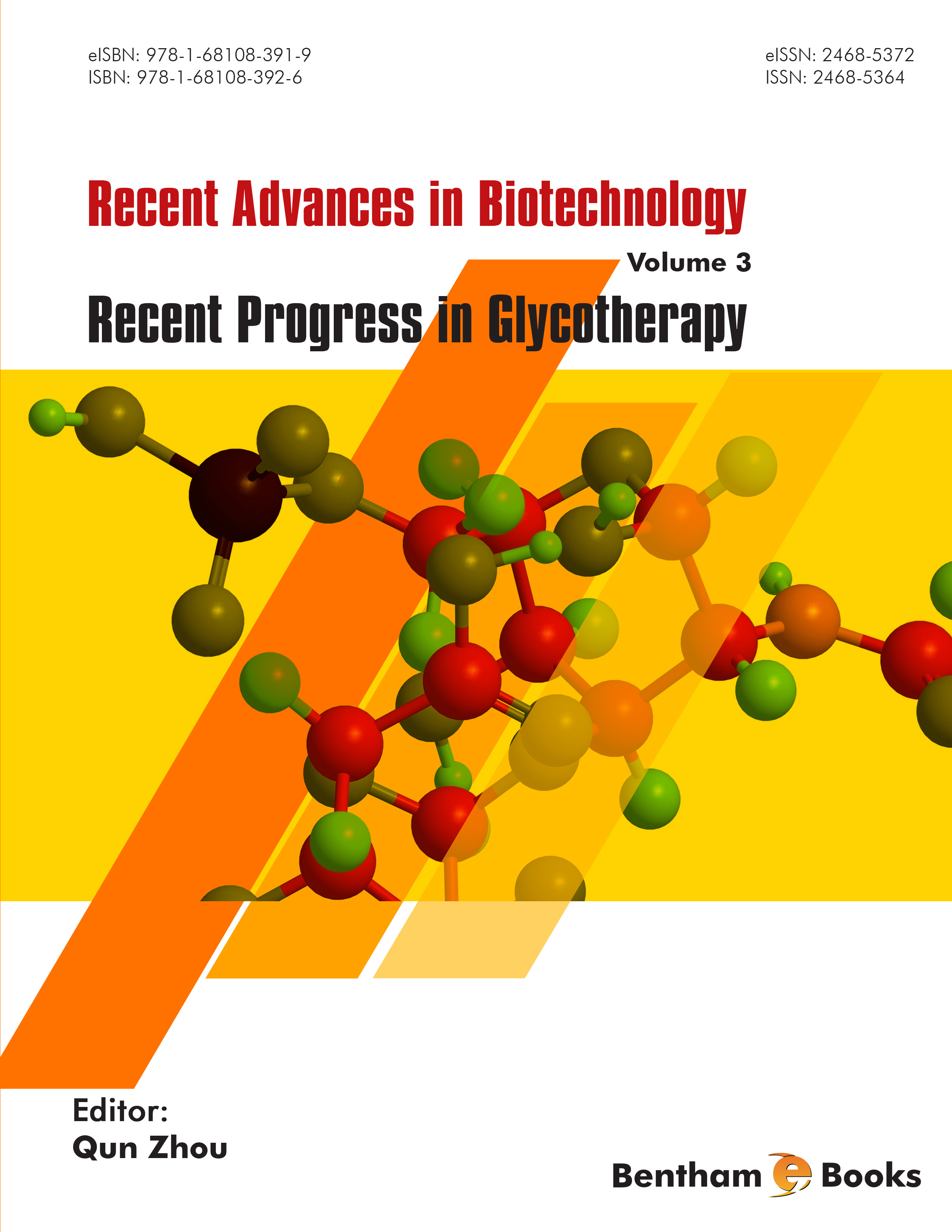Introduction
Carbohydrates (monosaccharides, oligosaccharides and polysaccharides) exist naturally in free from and as components of other macromolecules (nucleic acids, proteins and lipids). Glycotherapy refers to this use of carbohydrates or glycoengineered macromolecules in fighting life-threatening diseases. Although glycotherapy is a relatively new and limited field of pharmacology, significant progress has been made in recent years in academia and the pharmaceutical industry facilitated by advances in enzymology and recombinant DNA technologies. Consequently, carbohydrate containing biologics are now used in therapeutic regimens.
This volume provides a summary of the progress made in developing therapeutic solutions using glycoengineering techniques. Topics covered in this volume include the development of vaccines and antibodies against tumor-associated carbohydrate antigens for cancer treatment, the use of glycan for viral inhibition, glycoPEGylation, hyaluronic acid conjugation, and protein modification and conjugation for increasing therapeutic index using recombinant and chemoenzymatic approaches. The volume is essential reading for biochemists, pharmacologists and R&D professionals interested in glycotherapy.

